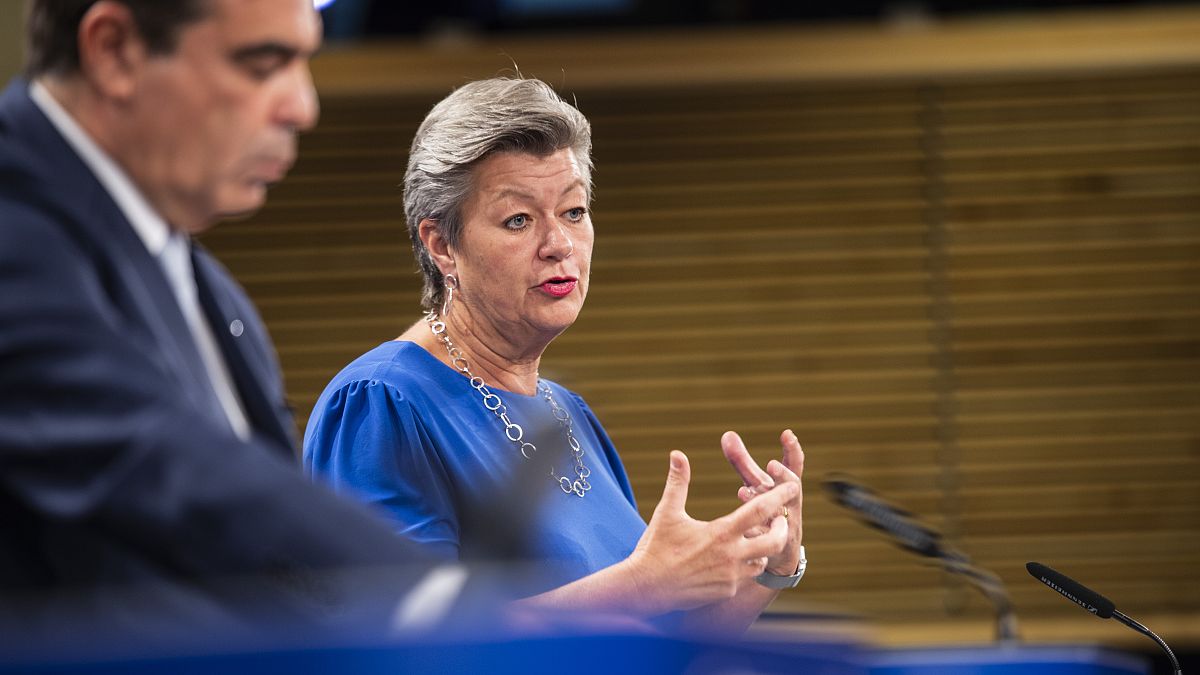Brussels believes the Lukashenko regime is sending migrants towards the EU's eastern border in order to destabilise the bloc and sow chaos.
The European Union has partially suspended a special visa agreement with Belarus as retaliation for the ongoing migration crisis on the border with Poland, Lithuania and Latvia. The suspension will only apply to government officials and holders of diplomatic passports.
Brussels believes the regime of President Alexander Lukashenko is encouraging migrants to cross the border and enter EU territory in order to destabilise the bloc's internal politics and sow chaos.
Polish border guards said they had recorded 3,500 successful and unsuccessful border crossings in August, with around 5,000 more attempts in September alone. Warsaw has reacted by reinforcing the borders with soldiers and razor wire to stop the attempted entries. The government is now seeking an extension of its state of emergency to cope with the situation.
"We are seeing a totally new phenomenon from Lukashenko. This is a person and a regime that is desperate, after the sanctions from the EU, that really hurt him. He is trying to invite or import migrants and they have to pay a lot of money," Ylva Johansson, European Commissioner for home affairs, told Euronews. "They are being tricked by false promises."
Human rights workers say the migrants are fleeing war or poverty at home and should be treated humanely. They view the state of emergency as unjustified, noting that it allows the authorities to act without any oversight in the border area.
"They [the migrants] are more and more exhausted. Exhausted people that are lost somewhere in the forest, that are being pushed back by both Belarus and Poland multiple times from one site to another," Marta Górczyńska, a Polish human rights lawyer, told Euronews.
"They cannot walk from Belarus to Poland again and again in this very harsh conditions, in this very low temperatures with no proper food, no proper shelter, no proper clothes. When we meet these people they're in an absolute mess."
The crisis has been linked with the rafts of strict sanctions that the EU has imposed on the Lukashenko regime since the 2020 presidential election, which Brussels deemed neither fair nor free and the hijacking of a Ryanair plane over EU territory. The punitive measures have blacklisted officials close to Lukashenko, including members of his own family, and state-owned companies.
As migrants continue to arrive at the border, mainly from Iraq but also from Congo, Cameroon and Syria, the EU is under increasing pressure to take decisive action against Belarus. Five migrants have died so far under the harsh conditions on the ground.
"We must prevent death at our external borders. But it’s also important that we have to stand together to protect our external borders and to be firm against Lukashenko. He is the one actually causing these problems," Johansson said.
"We need to remember: we are not Lukashenko, we are the European Union. We are based on other values. We are committed to international conventions."
On Wednesday afternoon, the Commission announced the partial suspension of the Visa Facilitation Agreement, a 2020 deal that makes it easier for Belarusian citizens to obtain short-term visas (up to 90 days) to come to the European Union. The standard application fee is €35.
The scheme, which was signed mere weeks before the 2020 presidential elections, also offers longer visas (up to 5 years) for certain travellers, like journalists, students and members of government delegations.
The Commission is now suspending the agreement's application for Belarusian officials who work for the government, the parliament and the country's highest courts, as well as for diplomats who wish to participate in meetings, negotiations and events that take place in EU countries.
The suspension sends a "strong signal that is crystal clear", said Margaritis Schinas, one of the Commission's vice-presidents, who made the announcement next to Johansson.
Wednesday's decision coincided with the presentation of an updated plan to combat migration smuggling. For the first time, the Commission has included cases of "instrumentalisation of irregular migration by State actors", a phenomenon described as "highly worrying".
Besides Belarus, Morocco and Turkey have been too accused of encouraging migrants to cross their borders and enter the EU illegally.
"Those who seek to test Europe’s unity by instrumentalising human suffering and migration will be disappointed," Schinas said. "Our external borders are European borders and are a common responsibility."
The action plan foresees retaliation in areas such as visa, trade, development aid and financial assistance. It also proposes faster operational support by EU agencies, such as Frontex and Europol, and, if necessary, the application of the EU's Magnitsky Act to punish those suspected of being responsible for human rights violations.
The Belarusian crisis, Schinas said, underlines the need to reach an agreement regarding the EU's new pact on migration and asylum. The plan, unveiled a year ago, is the latest attempt from Brussels to introduce an EU-wide cohesive migration policy based on close cooperation and burden-sharing.
However, deep-rooted disagreement between member states continues to hinder legislative progress, forcing the bloc to design ad-hoc solutions each time a new migration crisis arises.
